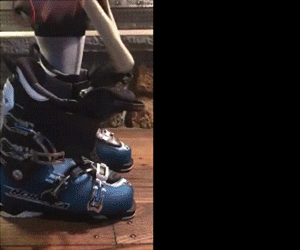A lot of us take lessons, so I'm wondering:
What do you think someone should know about ski lessons? Sure, there's important stuff like 'be aware of your true abilities going in' and 'have an idea for what you want to work on.' But are there other things that it would make sense to be aware of, either before you start or once you're in a class? What do you think it takes to get the most out of your ski lesson? And instructors, what do you recommend?
What do you think someone should know about ski lessons? Sure, there's important stuff like 'be aware of your true abilities going in' and 'have an idea for what you want to work on.' But are there other things that it would make sense to be aware of, either before you start or once you're in a class? What do you think it takes to get the most out of your ski lesson? And instructors, what do you recommend?

